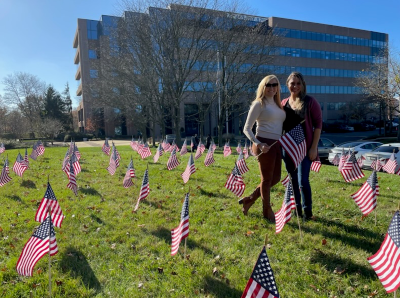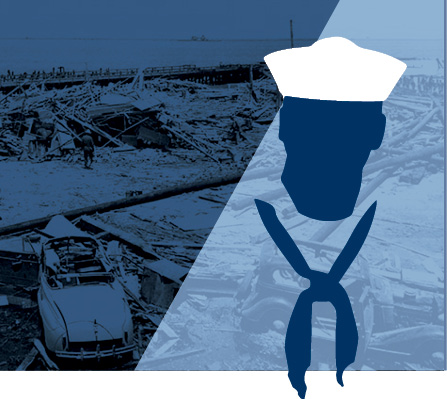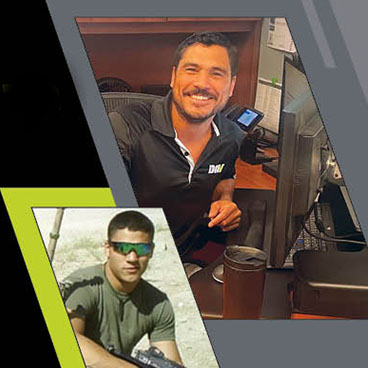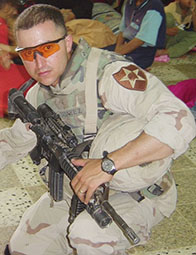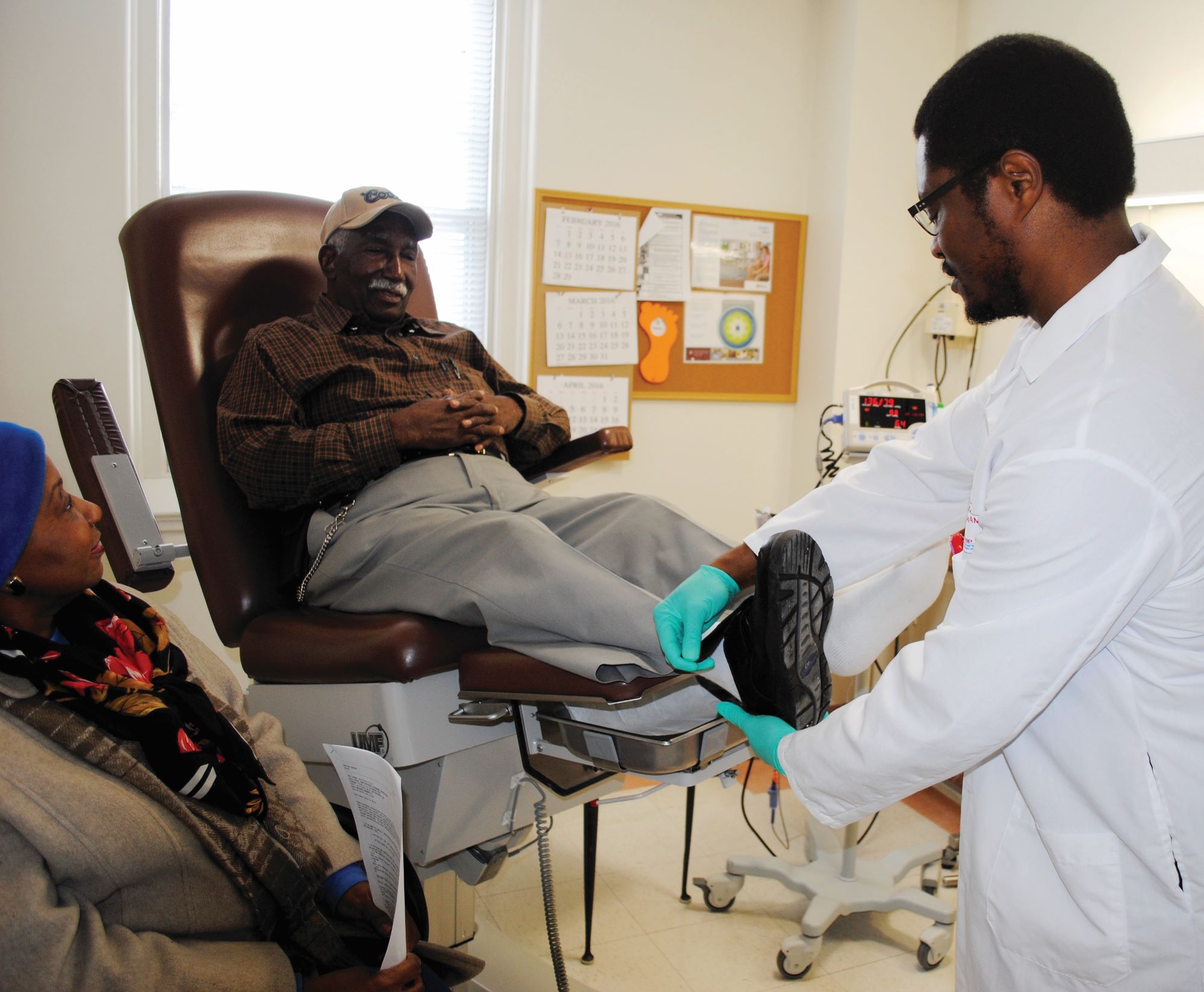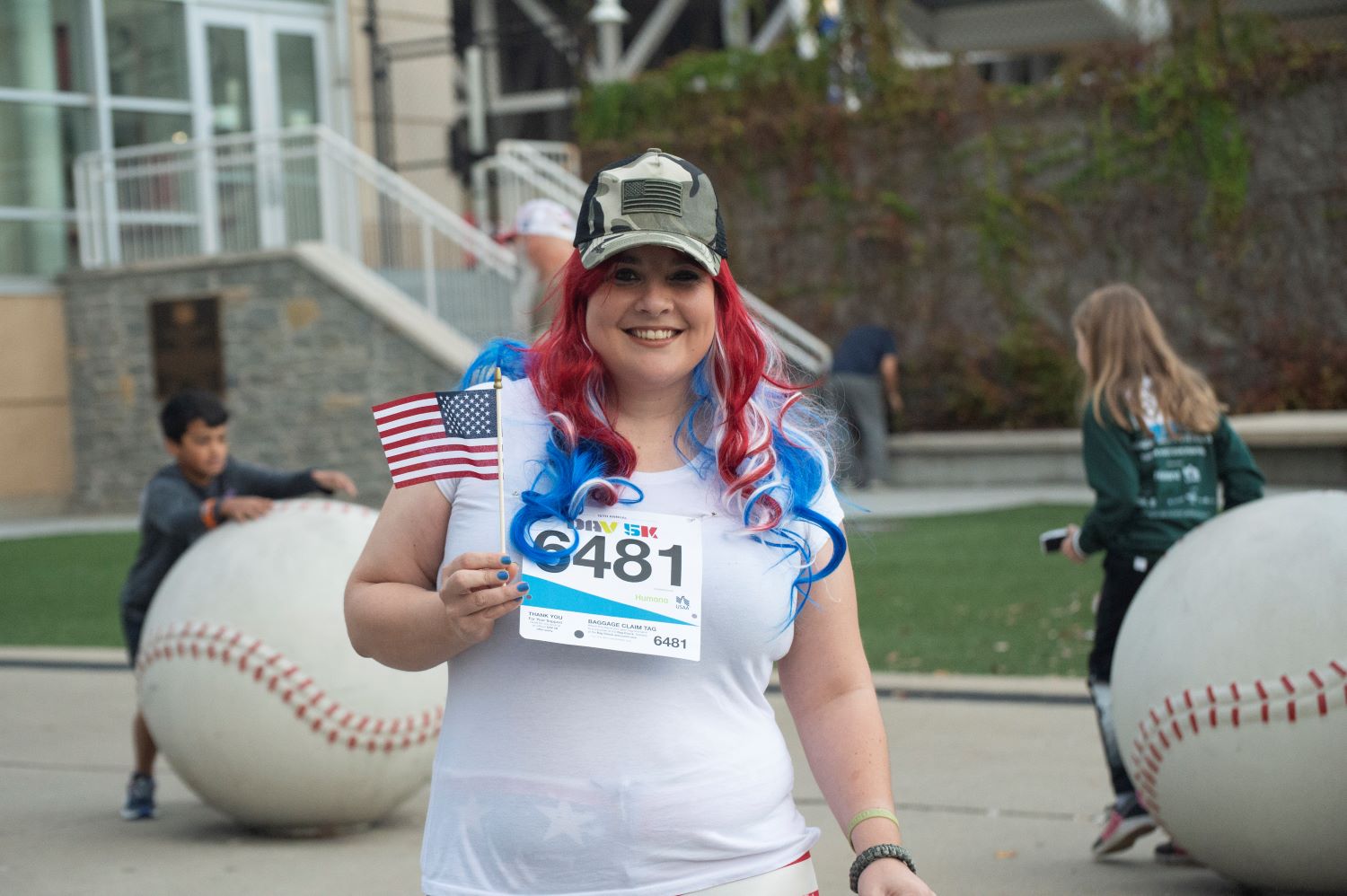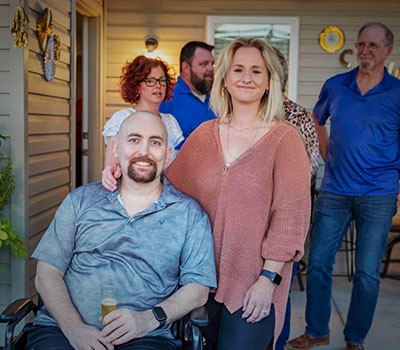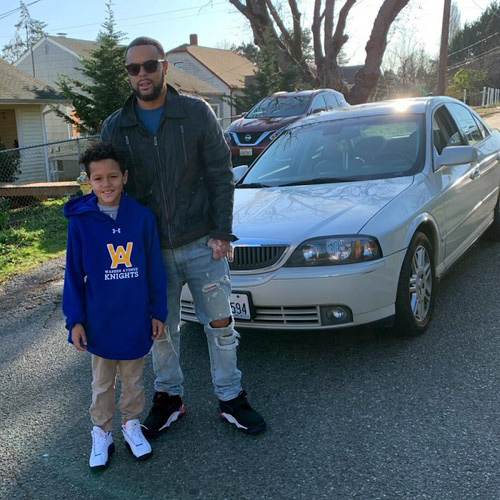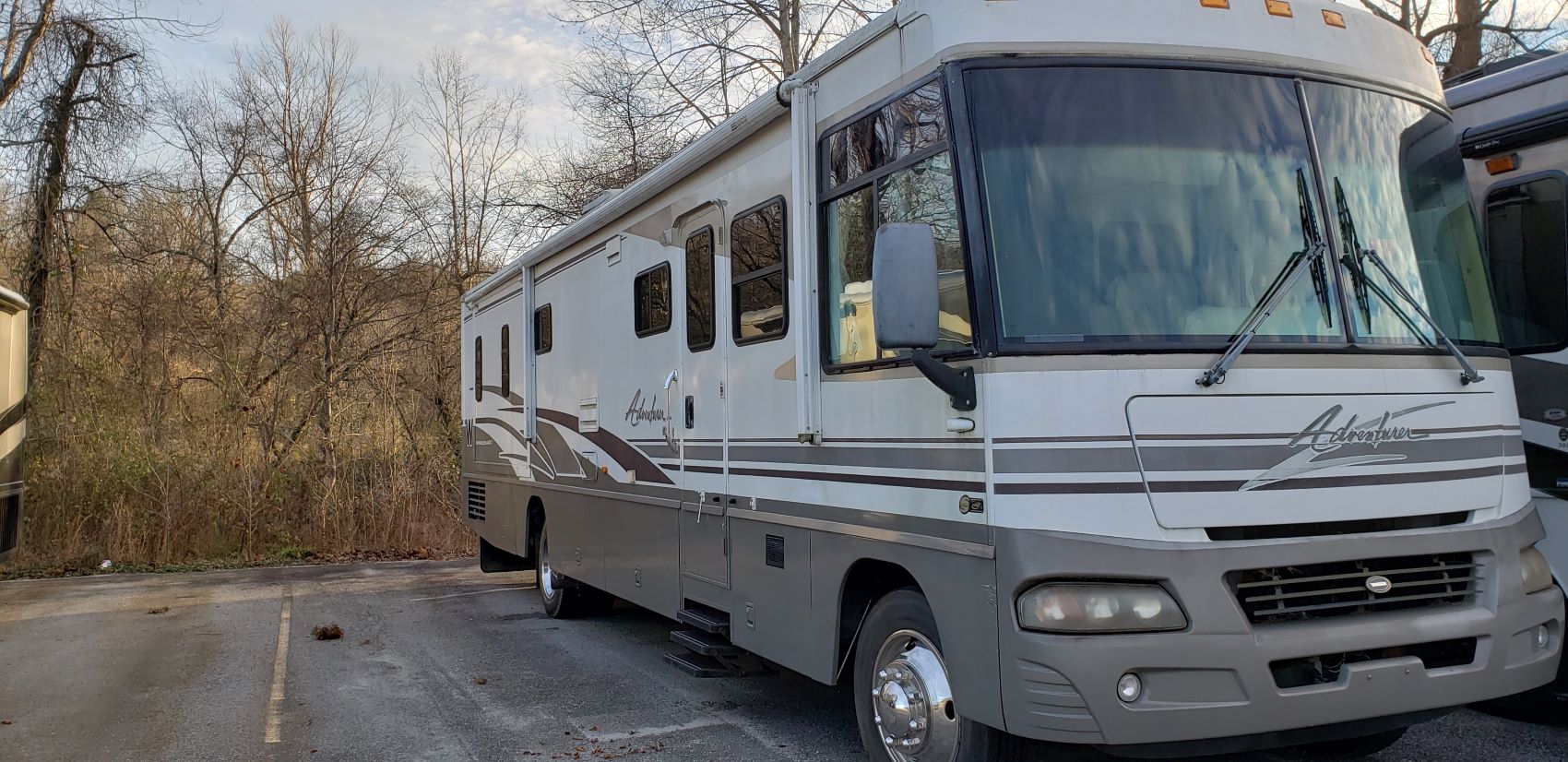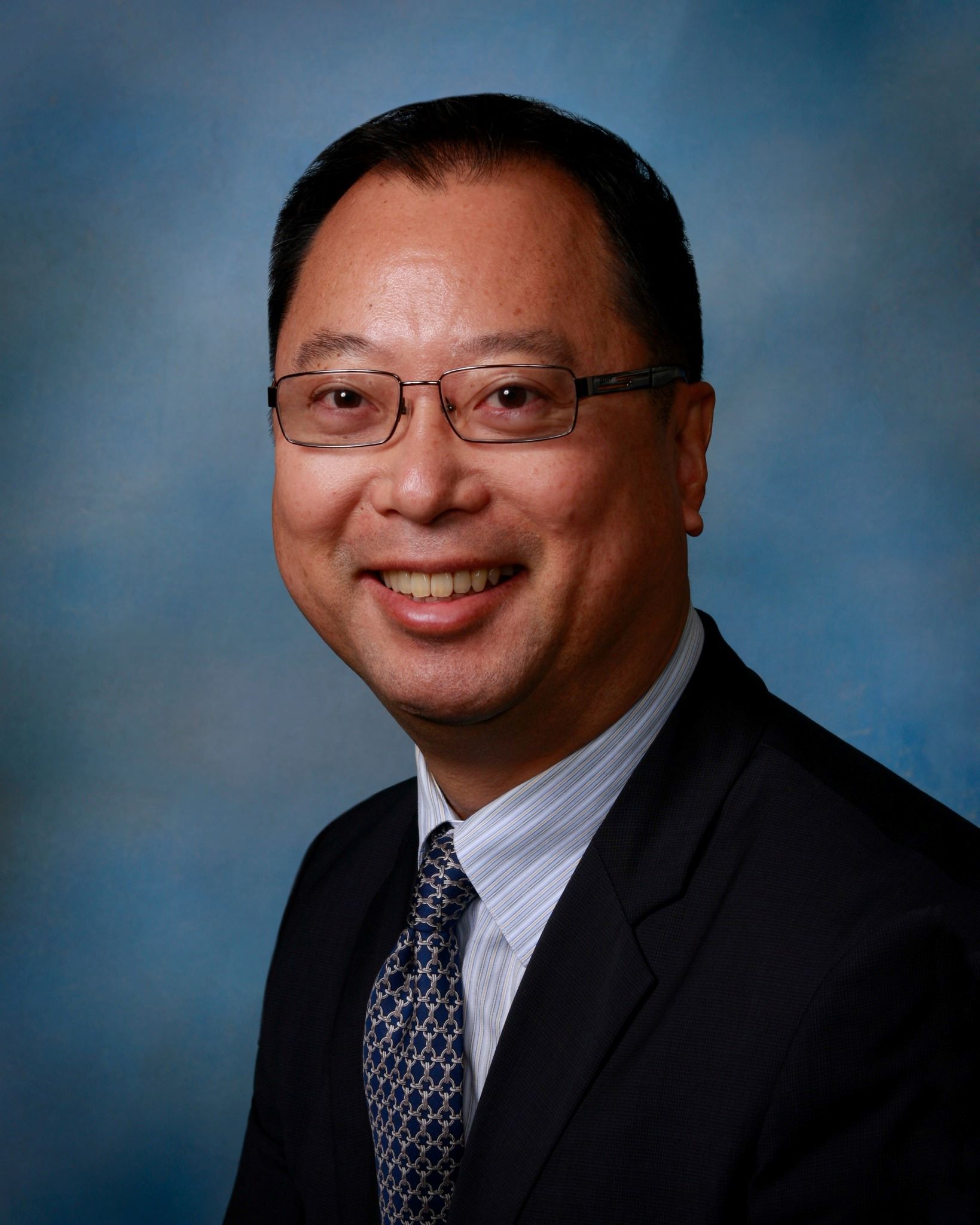After veteran’s suicide, DAV secures support – and hope – for young widow and children
In the fall of 2011, Lorrene Eads was a young wife and mother who had just learned that she was pregnant again. She never had a chance to tell her husband Ronson the good news.
Days before Thanksgiving, Ronson Aaron Eads, 27, an combat veteran of Afghanistan, committed suicide. The young veteran had battled PTSD since his deployment, where he lost good friends.
Lorrene, also just 27, felt lost.
“I didn’t know where to go,” said Lorrene.
She never imagined that their story—their marriage, their family—would know such a tragic chapter. The pair met through mutual friends when she was attending school at Indiana University in Ronson’s hometown Bloomington, Ind. She was a history major with plans of becoming a lawyer. Ronson, meanwhile, felt strongly about serving his country and enlisted in the Army.
“He talked about it for a long time,” Lorrene said. “It was just something he wanted to do. He wanted to serve his country. He was very proud of it.”
The day after their wedding, Ronson was off to boot camp at Fort Leonard Wood in St. Louis, Mo., while Lorrene remained in Bloomington. Two soon became three, as they welcomed their daughter Halley into the world.
“He got to come home when I had Halley,” said Lorrene. “He made it in time.”
And, Ronson’s oldest child, Dakota, now had a new sibling.
When Ronson was stationed in Bamberg, Germany, Lorrene and Halley soon followed. It was a happy time for the Eads family. Ronson served five years as a military police officer, spending three years in Germany with the 173rd Airborne Brigade, and one 15-month tour in Afghanistan.
But like so many soldiers, Ronson returned home from Afghanistan a different man. In 2009, he was diagnosed with Post Traumatic Stress Disorder (PTSD).
“Before he went to Afghanistan, he was happy, he was humble, and we never fought,” Lorrene said. “With PTSD, it’s a whole different world. It completely flipped his personality.”
Ronson’s first attempt at suicide came when he was stationed in Virginia. For a short time while hospitalized, Lorrene saw the Ronson she knew, but her husband’s behavior could turn on a dime.
“I mean, it’s a flip of the switch, it really is,” said Lorrene. “It’s scary. You could go to bed and he would be the person I married, and you wake up and he’s not that person anymore.”
After his suicide in November 2011, it appeared that Ronson had carefully planned his death, leaving behind a chilling four-page suicide note that spoke to the deep pain he felt from the death of his friend in Afghanistan, and frustration over his unmet attempts to get help.
Her husband gone, Lorrene had no idea where to turn. It was Vietnam veteran Chuck Welch who helped offer direction. When Welch heard about the stricken young widow, he reached out to her and told her about DAV, and exactly who she should contact. DAV provided the hope, knowledge and support that the grieving widow was seeking.
“Once DAV came into my life, it was like a knight in shining armor,” said Lorrene. “DAV steps in and helps you, and allows you to cope.”
Ronson separated from service on February 7, 2011. He never filed a claim for a disability or sought mental health treatment because he said he had lost hope, and didn’t know where to turn.
He also had no way of knowing that his wife had just become pregnant with their second child.
DAV benefits advocate Donald Inns recalled his conversation with Lorrene as the hardest of his career.
“Less than two weeks after the veteran’s sudden death, her emotional wounds were still fresh,” says Inns. “She was concerned that the added stress could cause complications with the pregnancy. The good news is that Zachary Aaron Eads was born healthy on August 7, 2012.”
With Inns’ help in filing her claim, the VA granted service connection for cause of death and entitlement to Dependency and Indemnity Compensation (DIC). Lorrene is now eligible for ChampVA health insurance and Dependents’ Educational Assistance.
“All the struggles went away and I was able to focus on healing,” said Lorrene. “DAV came through—it was like I no longer had to struggle and I didn’t have that before. With DAV, my life has possibilities—we have success, we have growth. My kids have a future.”

